Faith or Flag? A Comparative Look at Islam and Nationalism
Nationalism, often defined as the ideological drive that a distinct group of people should form or maintain an autonomous government, has been one of the most influential forces in modern political history. In contrast to the modern nationalist agenda, Islam presents a worldview rooted in universalism, human equality, and divine accountability. This essay explores how Islam, in its theological and political teachings, differs from nationalism and critiques its core elements such as chauvinism, exclusivity, and the politicisation of fear, anger, and victimisation.
The modern nation-state, as a political formation that merges a culturally defined people with a sovereign territory, is a relatively recent phenomenon. Historical examples such as the late 19th-century unifications of Germany and Italy illustrate that united nation-states did not exist in much of the world before the modern era. Outside Europe, coherent discussions of functional nation-states only began in the twentieth century. Nationalism, a movement demanding statehood based on a shared national identity, primarily arose in Europe as a political response to the Enlightenment’s universal claims.
Islam opposes the concept of nationalism as an ideology and offers a distinct perspective on the human community. While Islam does not reject the concept of qawm (nation) and acknowledges that prophets before Muhammad ﷺ were sent to specific peoples or societies, it challenges the exclusivist and divisive logic of modern nationalism, particularly when it fosters a sense of superiority and leads to the oppression of others.
A defining feature of nationalism is its reliance on a shared cultural or ethnic identity, often leading to a sense of superiority over outsiders. In contrast, Islam is deeply universalist. The Qur’an repeatedly affirms that all humans originate from a single soul (Qur’an 4:1) and that diversity in tribes and nations exists only “so that you may know one another” (Qur’an 49:13). This verse clearly condemns ethnocentric pride, affirming that moral and spiritual excellence—not bloodline or ethnicity—is the true measure in Islam.
The Prophet Muhammad ﷺ further exemplified this in his farewell sermon (khuṭbat al-wadāʿ), declaring: “No Arab is superior to a non-Arab, and no white is superior to a black, except by devotion and good action.” It is crystal clear that this message stands in direct opposition to the exclusivist pride inherent in nationalist ideologies.
Modern nationalist movements frequently arise from emotions such as fear, anger, and a sense of victimisation. Whether it is white nationalism in the United States, blind ethnic loyalty in Europe, or sectarian chauvinism in parts of the Muslim world, nationalism often exploits these emotions to build solidarity and justify aggression.
Islam’s political ethics, however, discourage such emotional mobilisation. The Qur’an instructs believers not to be governed by fear of others, but to fear Allah alone (Qur’an 3:175). This God-centred fear is intended to ensure that human behaviour is guided by responsibility, justice, and compassion.
Likewise, anger is often used as a tool to promote political or judicial action. Yet the Prophet ﷺ prohibited judges from making decisions in a state of anger. Qur’anic history also commends those who exercised restraint in emotionally charged situations, such as during the Treaty of al-Ḥudaybiyyah. Moreover, Islam discourages a victim mentality that seeks to blame others while ignoring self-accountability. Instead, it affirms personal and collective responsibility: “Indeed, Allah will not change the condition of a people until they change what is in themselves” (Qur’an 13:11).
At the heart of nationalist mobilisation lies ʿaṣabiyyah—the blind loyalty to one’s tribe or group. The Prophet Muhammad ﷺ strongly condemned this mentality. When asked about tribal partisanship, he replied: “It is supporting your group in wrongdoing.” He also stated that whoever dies under the banner of tribalism dies a “death of Jāhiliyyah” (the pre-Islamic age of ignorance). This condemnation applies not only to Arab tribalism, but to all forms of chauvinism and supremacist ideologies—including those manifested in modern nationalism.
The Qur’anic model of unity is based on shared faith and values—not ethnicity or language. The example of Aws and Khazraj, two warring tribes of Madinah who were reconciled through Islam, demonstrates how Islam seeks to unify people under a single banner, free from resentment. When external enemies of Islam attempted to revive their former tribal hostilities, the Prophet ﷺ reminded them of their Islamic identity, warning that such divisions could lead them back to disbelief—not in creed, but through actions that break unity.
Islam, with its deep commitment to human equality, moral values, and communal harmony, challenges the core assumptions of modern nationalism. While acknowledging the existence of cultural and national identities, Islam rejects their use as motives for political mobilisation or as bases for division. Nationalism, in its modern political form, often incites fear, anger, and a sense of victimisation—emotions that Islam identifies as causes of injustice and conflict. As the world continues to grapple with the consequences of nationalist ideologies, Islam offers a unique alternative—one rooted in faith, morality, and universal brotherhood, not in blood or soil.
About the author:
Muhammed Swabeeh Karippur,a second-year undergraduate student in Sabeelul Hidaya Islamic College, Parappur. He is from Karippur, Kumminipparamb.
References
- Smith, Anthony D. Nationalism and Modernism. Routledge, 1998.
- Gellner, Ernest. Nations and Nationalism. Cornell University Press, 1983.
- Power, Samantha. A Problem from Hell: America and the Age of Genocide. Basic Books, 2002.
- Gellner, Ernest. Thought and Change. University of Chicago Press, 1964.
- Al-Ghazālī. Iḥyāʾ ʿUlūm al-Dīn (The Revival of the Religious Sciences).
- Ṣaḥīḥ al-Bukhārī and Ṣaḥīḥ Muslim.
- Ṣaḥīḥ al-Bukhārī, Kitāb al-Aḥkām.
- Ibn Ḥajar al-ʿAsqalānī. Fatḥ al-Bārī.
- Musnad Aḥmad and Sunan Abū Dāwūd.
- Ṣaḥīḥ Muslim.
Disclaimer
The views expressed in this article are the author’s own and do not necessarily mirror Islamonweb’s editorial stance.

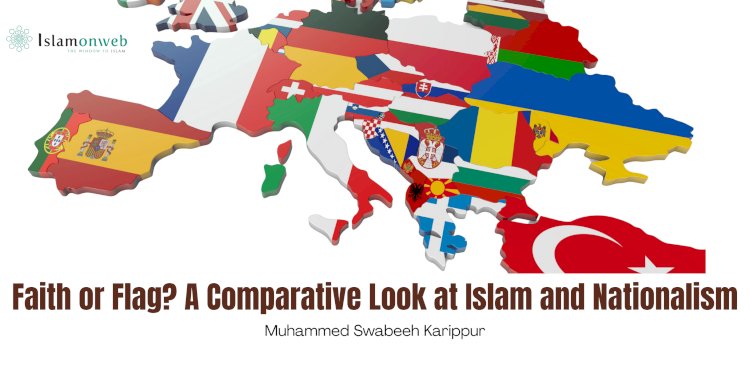


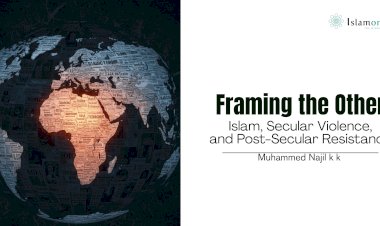

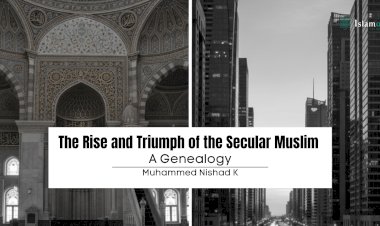
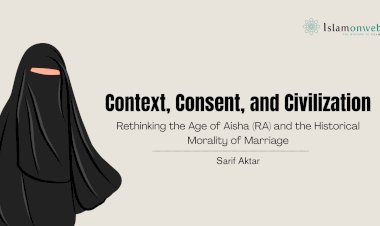
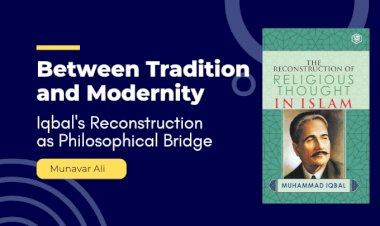
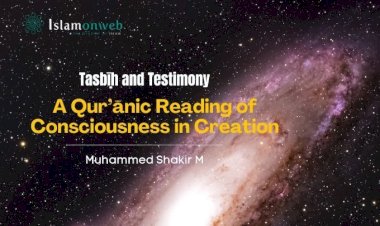














Leave A Comment